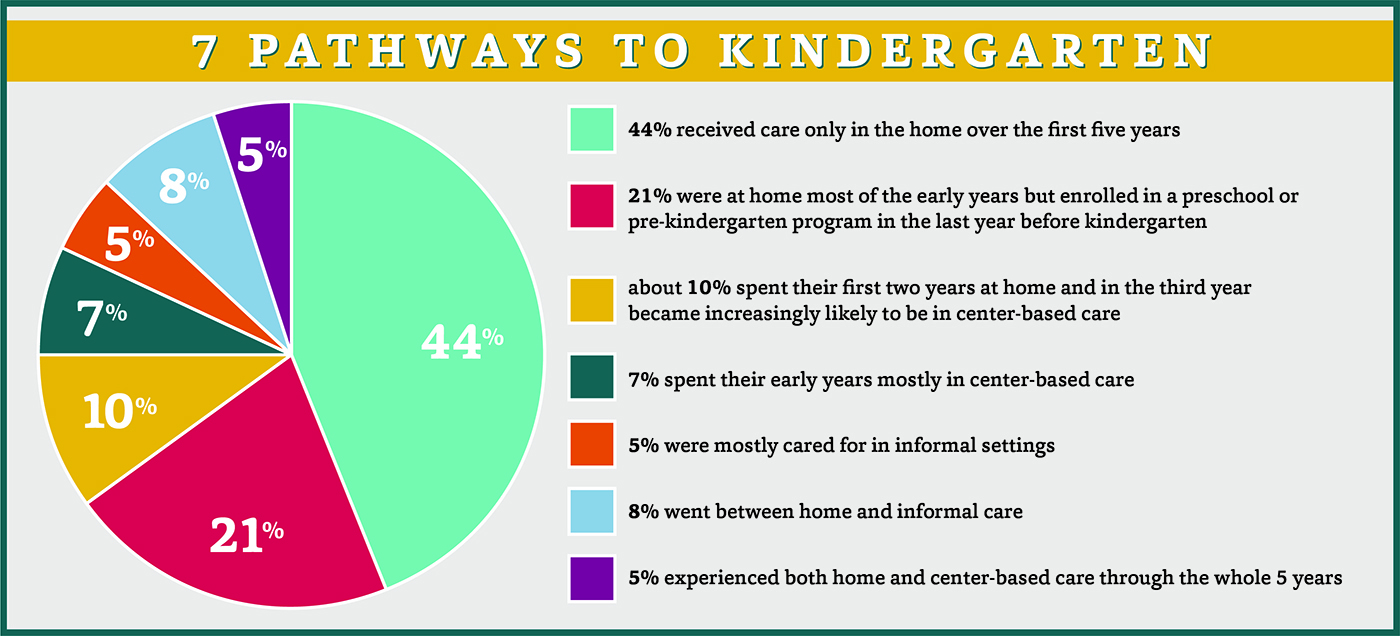An OSU study of kindergarteners in a Midwestern state (authored by educational studies’ Nathan Helsabeck and co-authored by Crane Center’s Dr. Kelly Purtell, Dr. Laura Justice, Dr. Tzu-Jung Lin and educational studies’ Dr. Jessica Logan) found seven different pathways a sample of 568 children took in their early education and care before arriving at school. Dr. Purtell said of this study,
It reflects the patchwork availability of child care in this country. Child care for infants and young kids is expensive, so there are not a lot of affordable options for parents. Parents have to find different ways to take care of their kids while they work.
The study also looked at whether children’s early child care and education pathway impacted their kindergarten outcomes.
KEY FINDINGS
The study identified seven different pathways of care before entering kindergarten:

The study did not show differences in test scores between children from the different care pathways. Most studies show that children that had center-based care have higher test scores in kindergarten than their peers who were not in center-based care. A limitation of the current study could be that there were not enough children in the study to reveal the academic differences.
Study results showed that children who spent most of their time in center-based care tend to have more teacher-reported social and behavioral problems in kindergarten. This could be because they are already used to the school setting and are more comfortable acting out.
ACTION STEPS
– 1 –
Researchers could consider exploring whether quality of center-based care moderates the relation between care pathway and children’s social-behavioral outcomes in kindergarten.
– 2 –
It is important for early childhood and early elementary educators, administrators and policy makers to be aware of potential social-behavioral difficulties and seek ways to address these difficulties through targeted intervention or curriculum. Addressing these concerns must not fall to teachers alone. Administrators should seek out improved curricula or professional development to help address social-behavioral difficulties experiences by some children.
– 3 –
Policy makers may increase support for young children in all education and care settings through assuring adequate funding and rigorous quality standards in center-based early child care and education.

